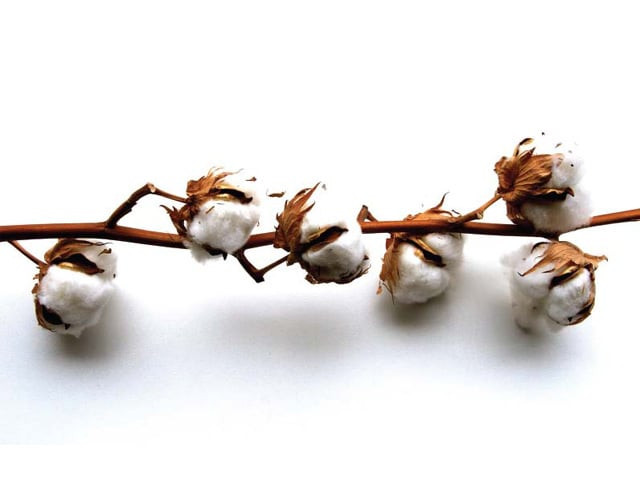Cotton: Pakistan, US join hands to combat deadly virus
Project will also look to protect proprietary rights of seed companies.

Cotton: Pakistan, US join hands to combat deadly virus
Under the Kerry Lugar assistance package a two-tier cotton enhancement programme is designed to develop cotton leaf curl virus (CLCV) resistant varieties of the crop in order to increase production by combating the virus, said Dr Brian Scheffler of the United States Department of Agriculture here on Monday. Pakistan is combating CLCV – a disease that attacks the leaves of the crop – for the last two decades and failure to find a solution has resulted in 20 per cent less production, said Dr Scheffler.
He said that the $9 million, three-year project will also focus on building the capacity of agencies managing the biotech cotton framework and facilitate the implementation of seed laws.
The CLCV is common in India, Pakistan and China. Cotton and cotton products constitute a tenth of the gross domestic product of Pakistan and as much as 55 per cent of foreign exchange is earned through these exports.
Dr Scheffler said that the virus was especially bad in Pakistan and the problem was that the virus is constantly changing and researchers did not know why and how it was changing. “In its present form, the virus is very aggressive towards cotton and has a big impact on productivity,” he added.
According to Dr Scheffler, this domain was identified for cooperation during the US-Pakistan Strategic Dialogue parleys. He said that the programme was going to be a participatory one where Pakistani scientists will work in consultation with US scientists. A team of four US experts will work through 2012 to find ways on how to cope with the problem.
He said that Pakistani scientists were already working on the disease and the US was looking forward to bringing 1300 different kinds of material for screening in order to develop a resistant variety.
“Pakistani scientists are very excited about the development and we already have an informal agreement to get the material here to be screened in the next growing season for resistance to the virus,” he added.
In response to a question, he said that there was no magic bullet to control the disease and therefore both countries will try different approaches. “It is not going to happen in three years but we are hoping to make significant progress,” he said, adding that Pakistan has done some pretty good work and if there were an easy solution, then it would have been found already”.
He added that the US will not provide expensive machinery since equipment will be given where necessary and where possible, depending upon the cost.
“Pakistan does not have laws to protect the proprietary rights of companies and that is why American companies are not selling cotton to Pakistan,” said Rey Santella, who is working with the US Department of Agriculture. He said that the second sub-programme is aimed at strengthening the regulatory framework to protect the proprietary rights of seed companies. “There are two pending laws relating to proprietary rights and their approval could help strengthen Pakistan’s regulatory framework,” said Santella.
Published in The Express Tribune, December 14th, 2010.



















COMMENTS
Comments are moderated and generally will be posted if they are on-topic and not abusive.
For more information, please see our Comments FAQ